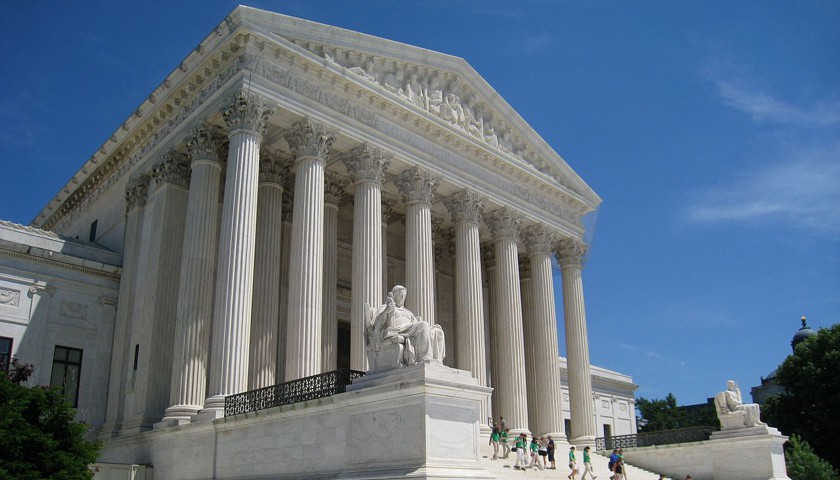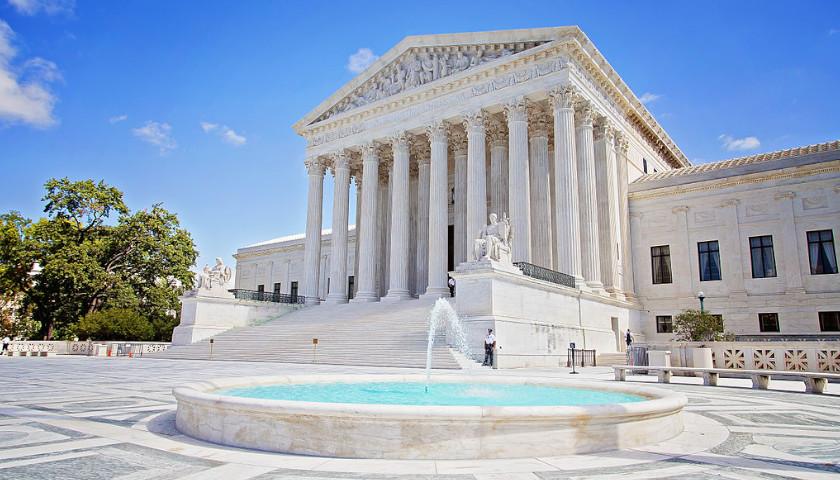By Natalia Castro
The Supreme Court was never intended to be fair; it was designed to interpret the constitution. Political parties have no place in the branch of government created only to determine the constitutionality of existing laws. The judicial branch does not write laws nor does it express political opinions, it is a system for interpreting current laws and policies policy and how they would be viewed by the Framers and maintain the legacy they created for this country. It seems some need to be reminded of that.
National Review’s Michael Brendan Dougherty’s claims, “The Supreme Court’s role…with Kennedy as the swing justice, has been to moderate and restrain the ambitions of each party. Kennedy deals out victories and defeats to each side — giving slightly more defeats to social conservatives. In effect, he constrains what each side can do to the other. His mercurial jurisprudence replicates and even gives the savor of legitimacy to a closely divided country.”
Dougherty argues that this is the role the Supreme Court should maintain into the future, equally dealing out wins and losses to each political party, ensuring each side’s constitutional legitimacy, essentially making the Court a purposefully bipartisan enterprise because political polarization has deteriorated it to such a level.
This ignores the very foundation of the U.S. constitutional system and if anything echoes the urgent need for more strict constitutionalists to enter the federal courts.
In the 1803 case Marbury v. Madison, the Supreme Court used the implied power of judicial review and cemented their place in U.S. history as a check on the legislative and executive branches. Not bound to the writers of laws but the writers of the Constitution, the Supreme Court’s vital role, and indeed the role of all U.S. courts, has been to determine if the actions of the legislative and executive branches are just and in accordance with the Constitution.
Without this system, any legislature could impose rules that undermine the fundamental rights of citizens whenever it is seen as politically pertinent. The U.S. Constitution would be useless if the Supreme Court determines an action to be lawful simply because it is the Democrats or Republicans “turns” at a win.
While the impact of this devolution to the Constitution should be evident, let’s take another look at the 2007 case of Massachusetts v. Environmental Protection Agency to understand the effect of a court system modeled after Justice Kennedy.
Justice Kennedy contributed the “swing” vote which so passionately Dougherty claims is necessary to maintain bipartisan appeasement. His vote required the EPA to consider carbon dioxide as a harmful pollutant under the Clean Air Act and regulate its emissions in public spaces. This case fueled a future of legislation through regulation, when soon after former President Barack Obama was elected, the EPA immediately expanded the scope of the Clean Air Act’s implementation with the Carbon Endangerment Finding, the new and existing power plant rules and the Clean Power Plan.
The Judicial System was never intended to, nor should it ever, play a role in lawmaking, but Kennedy and the other affirming Justices believed that the issue of global warming was imperative to address, so they gave themselves the power to determine how an executive agency should govern with little constitutional or statutory reference.
As the late Justice Antonin Scalia explained in his dissent, “This is a straightforward administrative-law case, in which Congress has passed a malleable statute giving broad discretion, not to us but to an executive agency. No matter how important the underlying policy issues at stake, this Court has no business substituting its own desired outcome for the reasoned judgment of the responsible agency.”
The Supreme Court provided itself undue authority over lawmaking and determining how executive agencies should carry out their business, in a single decision Kennedy significantly expanded the power of the courts and created a legacy of legislature through litigation which the Trump Administration is just now attempting to unravel.
When decisions are made based on partisan favors rather than constitutional interpretation, they pervert the foundation of the separation of powers, checks and balances and democratic structure.
Rather than taking Dougherty’s plan to continually polarize the courts, what is needed are judges who will finally follow the Constitution.
Currently, of the 791 non-senior status federal judges in the judicial database compiled by the Federal Judicial Center, 438 or 55.4 percent were appointed by Democrat presidents, and 353 or 44.6 percent were appointed by Republican presidents including President Donald Trump. It is unsurprising the courts are turning more polarized when less than half the judges are likely to even be constitutionalists.
President Trump began reversing the trend of partisan judges with the nomination and confirmation of Justice Neil Gorsuch to the Supreme Court last year, Gorsuch represents the strict constitutionally driven ideology that should exist within the Supreme Court.
But there is still a long way to go.
With 145 federal judge positions still vacant, only 23 of Trump’s nominations have been approved, including a dozen appeals court judges. Believe it or not, Trump ranks sixth all-time for getting judges and justices confirmed in a president’s first year, according to a study by the Los Angeles Times. 43 nominations are still awaiting Senate confirmation. The Senate must continue quickly to get these constitutional judges on the bench and restoring law and order.
The Supreme Court is not what it once was, but that does not mean it should ever abandon its foundation, for that would be abandoning the Constitution. It is not a bipartisan scorekeeper. The U.S. judicial system is the interpreter of the Constitution, and judges who believe in that mission must be confirmed to the courts to restore it.
– – –
Natalia Castro is a contributing editor for Americans for Limited Government.
Reprinted with permission from NetRightDaily.com




